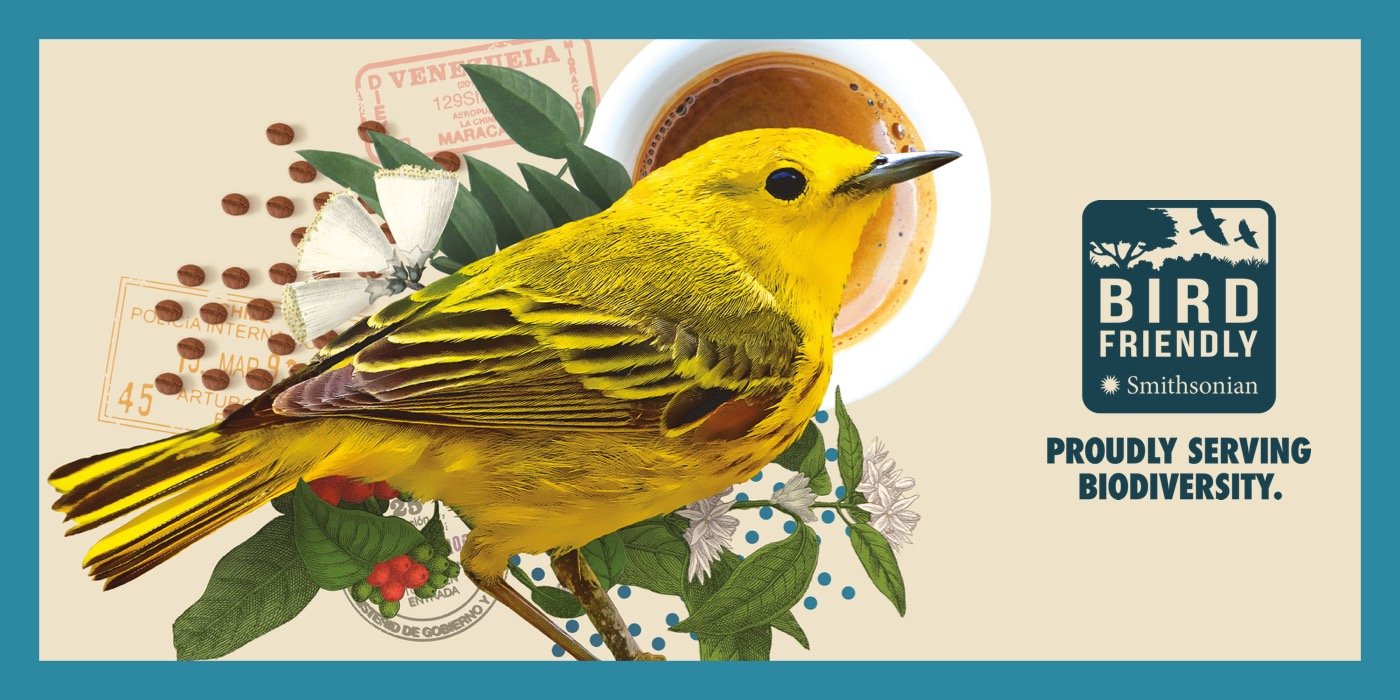What Do All The Coffee Certifications Mean & Why Do They Matter?
Photo curtesy of the Smithsonian Migratory Birdy Council
We recently released our first Bird Friendly coffee, Rare Bird, and we’ve been getting tons of questions about what that and other certifications mean, so we decided to write this blog to help everyone! Specialty coffee is a vibrant tapestry woven with the threads of origin, cultivation, and brewing methods, yet, for the discerning coffee enthusiast, the journey transcends mere flavor notes and aroma profiles. Enter the realm of certifications, where the ethical, environmental, and social aspects of coffee production are meticulously scrutinized. We’re going to we unravel the intricacies of five prominent certifications: Rain Forest Alliance, Organic, Fair Trade, Bird Friendly, and Microlot.
Rain Forest Alliance:
The Rain Forest Alliance (RFA) certification stands as a beacon of sustainability in the world of coffee. Rooted in the principles of environmental conservation and community well-being, the RFA seal assures consumers that the coffee they're enjoying is cultivated in harmony with nature. The certification process involves stringent assessments across environmental, social, and economic criteria. From protecting biodiversity and wildlife habitats to ensuring fair wages and safe working conditions for farm laborers, Rain Forest Alliance-certified coffee embodies a holistic commitment to ethical and sustainable practices.
Organic:
For those who advocate for a more natural and chemical-free coffee experience, the Organic certification is paramount. This designation guarantees that the entire coffee production process, from planting to packaging, adheres to rigorous organic standards. Organic coffee is cultivated without the use of synthetic pesticides, herbicides, or fertilizers, allowing the beans to express their authentic flavors without interference from potentially harmful residues. Choosing organic coffee not only benefits the environment but also aligns with a health-conscious approach to coffee consumption.
Fair Trade:
At the intersection of social justice and coffee cultivation lies the Fair Trade certification. This emblem represents a commitment to equitable trading relationships, ensuring that farmers receive fair compensation for their labor. Beyond economic fairness, the Fair Trade certification addresses issues such as child labor and gender inequality within the coffee industry. By opting for Fair Trade-certified coffee, consumers actively participate in a movement that seeks to empower small-scale farmers and promote sustainable farming practices on a global scale.
Bird Friendly:
For those who cherish both their cup of coffee and the planet's biodiversity, the Bird Friendly certification is a unique and environmentally conscious choice. Developed by the Smithsonian Migratory Bird Center, this certification focuses on maintaining biodiversity within coffee plantations. Bird Friendly coffee is shade-grown under a diverse canopy of trees, providing a natural habitat for migratory birds. By selecting Bird Friendly coffee, consumers contribute to the preservation of ecosystems and the protection of migratory bird species, forging a connection between their daily caffeine ritual and the broader tapestry of nature.
Microlot:
In the pursuit of an unparalleled coffee experience, the Microlot certification takes center stage. Microlots are small, carefully selected portions of a larger harvest that exhibit extraordinary flavors and characteristics. These coffees are often traceable to a specific farm, region, or even a single producer. Microlot certification is a testament to excellence in cultivation, processing, and quality control. By delving into the world of Microlots, consumers embark on a journey of flavor discovery, savoring the nuanced profiles that make each batch a unique and exceptional expression of the coffee craft.
Making A Concious Decision:
In the vast landscape of specialty coffee, certifications serve as guiding stars for those navigating the complex web of ethical, environmental, and quality considerations. Whether it's the commitment to sustainability with Rain Forest Alliance, the embrace of organic purity, the advocacy for fair trade practices, the harmony with nature in Bird Friendly coffees, or the celebration of unique flavors in Microlots, each certification adds depth to the narrative of your daily cup.
As the global coffee community continues to evolve, consumers play a pivotal role in shaping the industry's trajectory. By understanding and championing these certifications, coffee enthusiasts become agents of change, contributing to a more sustainable, ethical, and flavorful coffee landscape. So, as you savor that next cup of specialty coffee, remember that your choice extends beyond the mug – it's a conscious embrace of a diverse, interconnected world of flavors, values, and responsible coffee cultivation.

